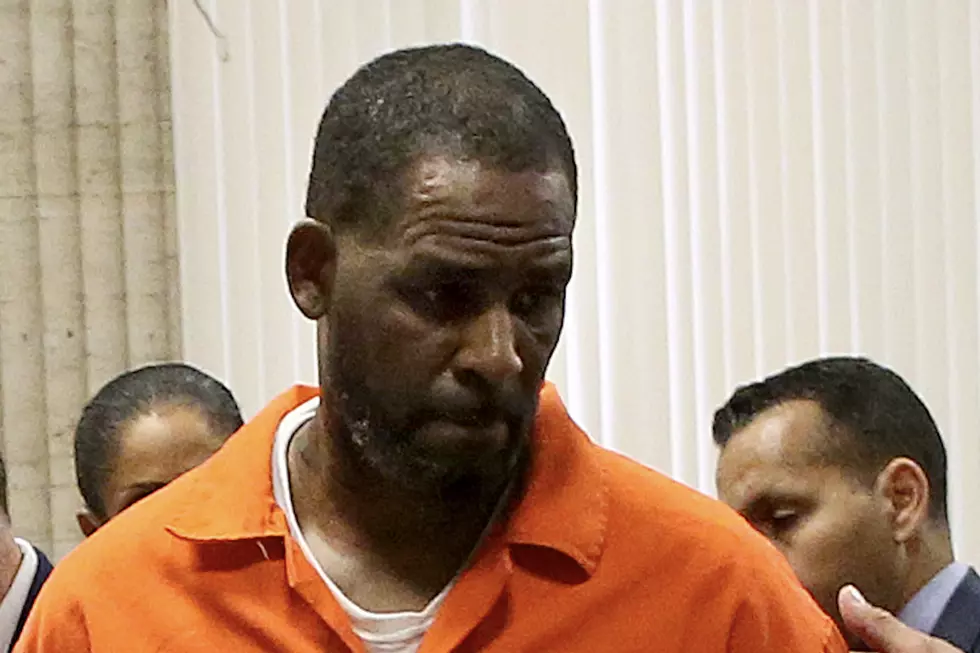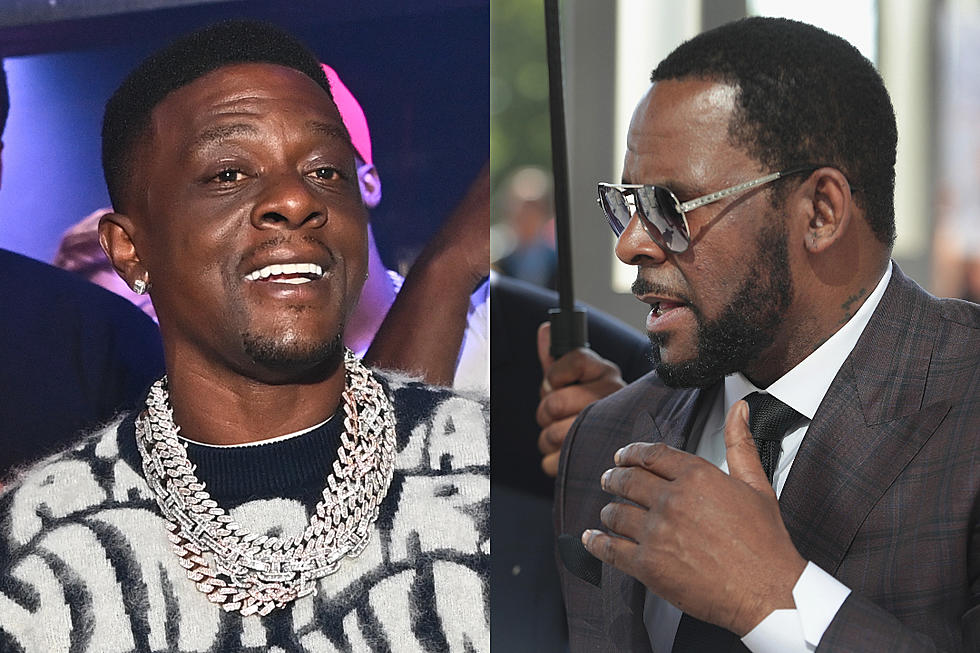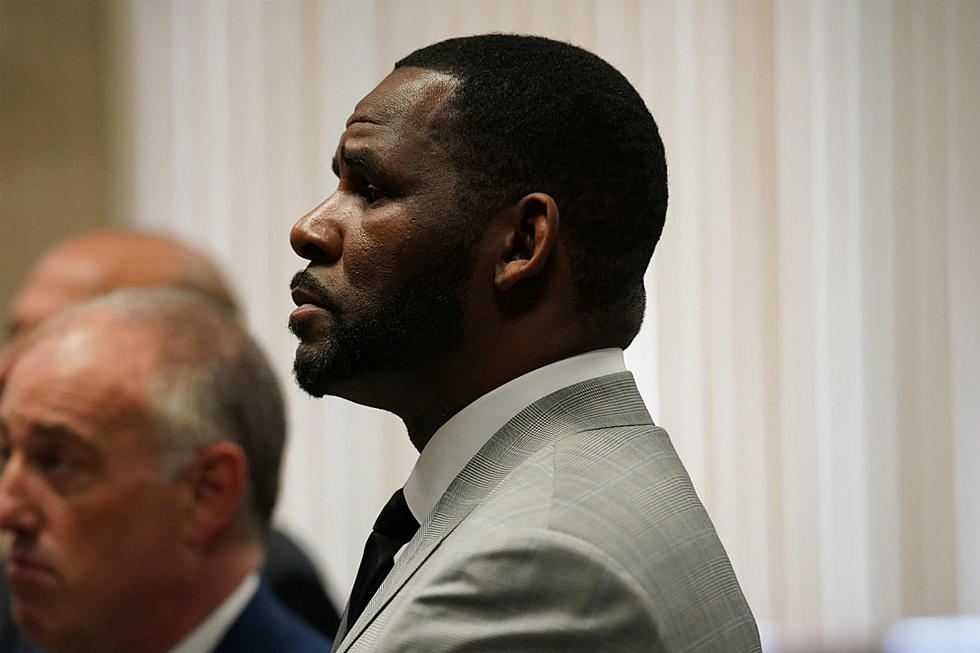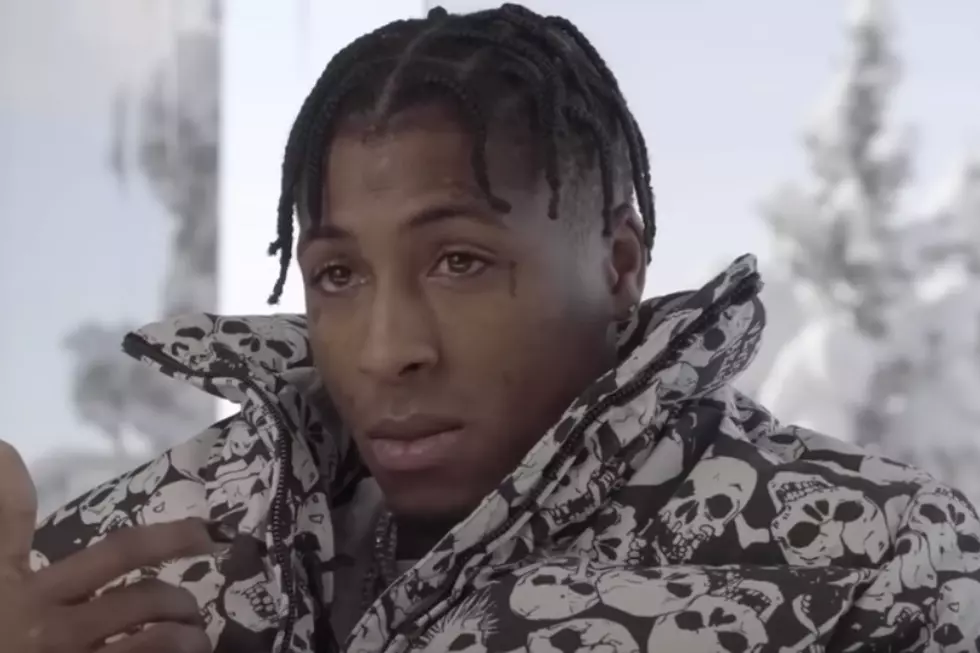
From R. Kelly to Chris Brown, Should We Separate Artists From Their Art?
It’s like finding out that the company that makes your favorite tuna fish traps dolphins in their fishing nets without releasing them. Or it’s learning that your favorite designer outsources sewing duties to sweatshops filled with children in third world countries. The consumption of anything we enjoy -- be it food, clothing, music, art or film -- often comes with a moral debate attached to it and it's up to the consumer to decide what's a deal-breaker and what's not.
It’s difficult in the world of entertainment, especially when the product is so personal and important to us. We listen to a song, we love the song, we idolize the song's creator and then we find out about his or her character flaws. The connection between listener and artist was made, but the connection can be broken. The question is, can you separate the artist from the art?
Recently, at the 2014 Golden Globe Awards, we watched actor and feminist icon Diane Keaton stand before the packed auditorium in her signature suit and tie gushing about her good friend, Woody Allen. Allen, who had an affair with his adopted daughter Soon-Yi while married to actor Mia Farrow, ultimately married his daughter with a 37-year age difference. That much is confirmed but allegations that Allen molested his then 7-year-old daughter Dylan have resurfaced, further casting Allen in a negative light. However, the popularity of Woody’s films hasn’t suffered, nor has the support from his peers wavered. As for his marriage to Soon-Yi, some may argue they weren’t blood relatives; others may say anyone who marries their daughter is deranged.
With hip-hop and R&B, the relationship between artist, art and how we view the relationship between the two is in constant flux. The misogynistic lyrics and themes in some rap music is cause for a continuous internal moral debate for many women. When it leaves the music though, and art imitates life, that’s where the real decisions come in. Should a fan choose between the artist or the art?
For nearly 15 years, we’ve had to decide whether to support or boycott R. Kelly’s music in light of claims of his sexual improprieties with underage girls. When a sex tape featuring a man who resembled R. Kelly having sex with teen girls surfaced in 2002, fans of the R&B mastermind were horrified as they watched a man in the tape urinate on a young girl. R. Kelly denied that the man in the video was him and he was eventually acquitted of all criminal charges by a Chicago jury. However, he hasn't been completely vindicated as tales of his sexual encounters with teenage girls still surround him.
Before R. Kelly, it was Michael Jackson, his fascination with children and accusations of abuse that led some to label the King of Pop a "pedophile.” Then the storms calmed, new songs were released, interviews showed a “different” side of the star and acceptance was, for the most part, restored. Unfortunately, we lost MJ a few years ago, while R. Kelly’s return to music with 'Black Panties' was met with excitement from fans. Yet the subsequent backlash from those who constantly serve reminders about his sexual allegations may have affected his album sales adversely. But 'Black Panties' is still the No. 2 album on Billboard's R&B charts so people are still purchasing the album. Did you?
The moral complexities of embracing the artist we love in light of their personal lives goes beyond cases of alleged sexual abuse. Rapper Jeezy recently found his way to the news following reports he made terroristic threats and assaulted his 15-year-old son.
And how about the now-infamous relationship between Rihanna and Chris Brown? In 2009, on Grammy night, the Brown assaulted Rihanna in the car headed to the ceremony. The images of Rihanna following the attack only added more nails to Brown’s crucifix. However, by 2010, during the BET Awards, he sobbed onstage during his performance and all was forgiven. He initially lost sponsorships, album sales faltered and his aggressive behavior has been flared up in a number of situations. Yet to his legions of diehard fans, the 'Fine China' crooner is still revered as an R&B icon.
These scenarios are far from new. According to Rita Marley, her philandering husband Bob Marley abused her and even raped her on occasion. His infidelity was protected under Rastafarianism, though non-Rastafari may object to that as well.
Lauryn Hill had an affair with Wyclef Jean while he was married and detailed it all in her debut solo album, The Miseducation of Lauryn Hill,' and it still stands as a classic LP. Polish director Roman Polanski was convicted of drugging a 13-year-old girl then sodomizing her, yet Nicki Minaj’s alter ego "Roman Zolanski" is named after the known felon. Even New York City DJ Mister Cee, of Hot 97 fame, whose multiple rendezvouses with male prostitutes led him to public scrutiny, only to lose and regain his job at the radio station. Where does the judgment begin and where does it end?
For most fans, it’s difficult to determine. Social networking and the cyclical churning of the news in the 21st century have allowed fans to receive a steady stream of fodder for opinions that can either reaffirm or negate their connection to an artist. Years back, the behavior was hidden and less overt. This allowed for the fandom to live on, only to be haunted by the crimes -- i.e. Phil Spector, who was convicted of second-degree murder of actor Lana Clarkson -- at a later time.
These days, it’s much easier for musicians to return in their fans’ good graces. The internet has allowed artists to create music at lightening speed. The better the song, the better the response, the better the chances that a fan might forget the sins committed. That doesn’t necessarily make the fan base weak-willed; it’s just hard to ignore a song when it’s catchy and pumped through radio speakers like a filled IV to a major vein.
Does that make artist's personal character OK though? Does the layering of creativity eliminate the dysfunctional pea in the mattress? It depends. Historically, rappers have sold drugs and turned into public figures, yet those drugs could have led to the destruction of lives. Musicians in general struggle with their own drug addictions, of which many die from overdoses. Their catalogs are labeled as classics and they’re buried with the title of "legend."
The next time you are presented with the option to turn your back on an artist’s music because the artist is a “bad person,” ask yourself a series of questions. What would you do if that artist molested your child? What would you do if that artist abused you or someone you loved? What if an artist’s hand was behind the drugs that were sold to your family member struggling with a drug addiction? If those series of questions still result in you reaching for your credit card to purchase an artist’s music, then you’ve successfully separated the artist from the art. It’s not the most difficult ordeal of your life, but being conscious of your decision is just as important as the moral dilemma itself.
More From Hot 107.9










